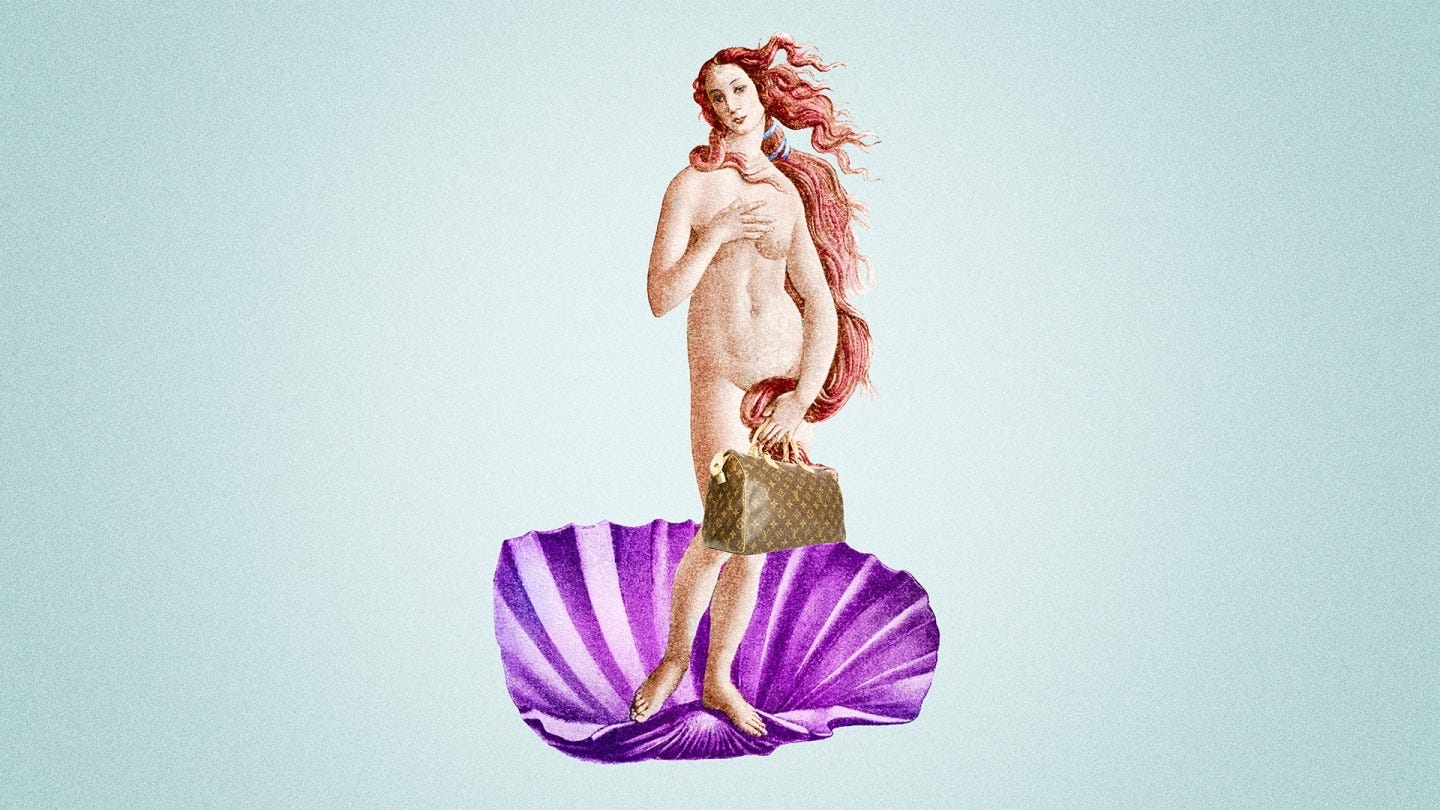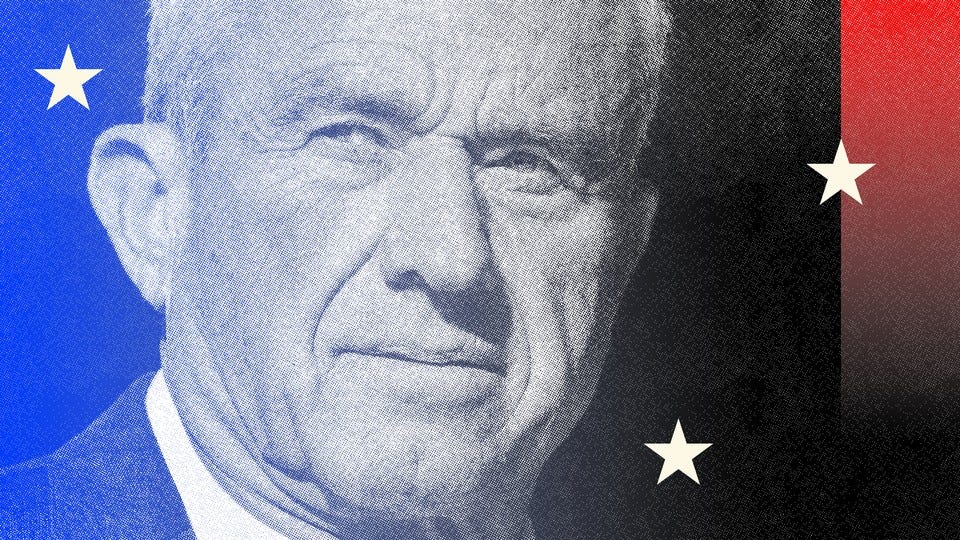Open season on social media
The overlords of social media have been outdoing themselves of late. They presumably assisted the riot/pogroms in the UK. And then someone made it into the Olympics breaking and it was time to make fun of her — by the millions. Ha ha ha. I had already taken a set against her hearing her groovified academic views about breaking and colonialism yada yada. And this takedown in the Saturday Paper seems pretty right to me. But millions of people seems a little strong to me.
I had my own experience of this a couple of years ago though on a vastly smaller scale. I quoted a passage from an article I’d read and referenced the passage — though I didn’t use quotation marks. The passage lamented the way the author’s ivy league education had distanced him from less formally educated people like his plumber. Some Twitter readers happened upon this quote and decided to let off some steam against, well elitists.
Anyway, there followed a day of hate — very mild hate in the scheme of things. Anyway, it occurred to me then, and I’ve never seen anyone resolve this, that there’s a distinction between publishing a thing — and amplifying it. I can’t see why someone shouldn't have an action in negligence against Twitter for amplifying hate. If the hate does damage (it didn’t to me particularly, it was mildly unpleasant but educative) then it seems to be there’s duty, breach and damage — the classic test for negligence.
It’s very foreseeable that the amplification of tweets such as the one below will do some damage — for instance if it says an adolescent girl is is ugly. One might want to argue that there are some free speech grounds or even public utility grounds on which a platform might be given some immunity for simply propagating a message to subscribers — though I think I’m happy with removing abuse from social media, providing it can be reasonably effectively done by algorithms. That would even leave the scope for something to go viral if enough people shared it within their own networks. But why would one want to give safe harbour to amplify abuse? Anyway, amplified it was.
Anyway, here’s Dan Williams arguing that there was much more to the UK riots than social media. No doubt there was. But should Twitter be held liable in negligence for amplifying the hate. If not why not?
And speaking of online nastiness
 Tiktok failed to load.
Tiktok failed to load.Enable 3rd party cookies or use another browser
The Unraveling of Britain
For years observers have warned that the United States may soon enter a “second civil war.” But after a week of ethnic riots across the United Kingdom, a different country is being described as standing on the brink of conflict. Elon Musk looked at the violence and posted on X that “civil war is inevitable.” Prime Minister Keir Starmer hit back, insisting the unrest in British cities is simple “far-right thuggery.” The country’s justice minister now hints that Musk’s social-media company could be sanctioned.
On the simple question of civil war, Starmer is right and Musk is wrong—if only for the reason that a country cannot stage a civil war when all the elites are on the same side. Few voices have suggested the riots point to something more than racism. Those that have—such as Nigel Farage, who sees “deeper long-term problems” that are the products of “mass, uncontrolled immigration”—prove their marginality by opening their mouths at all. When the police, the military, the judiciary, the media, the government, and all the leading political parties are in agreement, you have none of the ingredients for a civil war. At most, you have a peasant uprising. At the least, wanton violence.
Wanton violence is hardly new in Britain, of course. The country experienced a wave of it in 2011. Today’s riots, however, are different in two important respects. First, they are carried out by members of the majority ethnic group. Second, they are directed less against the government than against minority ethnic groups, which in one case have themselves responded with violence. Thus, unlike in 2011, these latest incidents raise the specter of broader “sectarian” or “communal” violence.
Other countries in the Anglosphere—those sharing not only Britain’s language, but a similar liberal polity, economy, culture, and civic national identity—have undergone similarly dramatic racial and ethnic transformations. Australia hasn’t collected such data since the 1970s, but its native English-speaking population dropped to 72 percent in 2021, down from 85 percent in 1991. From 1991 to 2021, the white share of the Canadian population fell to 74 percent, down from 91 percent. In New Zealand, those with European ethnicity made up 68 percent of the population last year, down from 83 percent in 1991. In the United States, the most diverse of all the Anglosphere countries undergoing the most rapid racial and ethnic transformation, the non-Hispanic white share of the population dropped to 58 percent in 2020, down from 76 percent three decades earlier.
Yet none of these other countries is witnessing communal conflict like Britain’s. Why not? While there are many reasons for this difference, two stand out.
The first is that the British are more rooted to place. Compared to high-mobility North America and Australasia, they change addresses less frequently than their Anglosphere cousins. … Mass immigration is new to Britain, whereas it was the basis of the founding and growth of the United States, Canada, Australia, and New Zealand.
A second reason is that much of Britain is poor. The country ranks above only New Zealand on both GDP per capita and disposable household income per capita. The average square footage of a British home is less than half the square footage of one in Canada and about one-third the size in Australia. Britain is also highly unequal geographically. In fact, by some measures it is the most regionally unequal developed country in the world. As the Financial Times observed last year, without London, the United Kingdom boasts a smaller GDP per capita than Mississippi. Taking the north of England alone, the comparison is closer to Puerto Rico. …
Bringing 2.5 million immigrants, mostly from poor countries, into such a social landscape in just two years was a recipe for conflict. Even though immigrants in Britain (as in the rest of the Anglosphere) have lower incarceration rates than the native-born population, shocking crimes can act as a spark, setting off the dry tinder that has been amassing for years.
As with their American counterparts, British elites are much more comfortable promising to tackle the “root causes” of mass immigration in a way that is supposed to stem it over decades (if ever) than they are impeding it directly in a matter of days. They have not shown a similar eagerness to discuss the root causes of ethnic rioting, however, but prefer to condemn online disinformation and create a “standing army” of specialized police units instead.
The rest of the Anglosphere shows that mass immigration and rapid ethnic change needn’t lead to communal violence. But if Britain is to follow North America and Australasia, it needs much more spatial equality, much more spatial mobility, and much less attachment to place. Canada, Australia, and New Zealand also accomplish ethnic peace by limiting their immigrant profiles to skilled workers likely to join the middle and professional-managerial classes. The United States uses the stern sanctions of the market to force immigrants to prove their worth through work.
Above all, Britain needs economic growth. Getting rich may not salve all wounds, but it heals many of them. Real GDP per capita in Britain fell every quarter in 2022 and 2023, and the annualized level of 2023 was lower than in 2019. Without growth, the country’s current open-borders approach will contribute to a compounding social disaster. British conservatives will then be proved correct in their predictions that this summer’s riots are merely the beginning of something worse to come.
Why Tim Walz loses dance-off for Vice President: SHOCK!!
HT: This tweet
Counterfeit Goods: Tim Harford
I’m a fan of most of Tim Harford’s columns, but this one irritated me because it failed to distinguish as clearly as I’d have liked between good and bad IP protection. And between things that should and should not be protected. And it’s preoccupied by who loses rather than what general settings maximise net benefits.
In the rich and felonious tapestry of human wrongdoing, how dastardly a crime is the counterfeiting of Prada or Armani? That depends. Counterfeits can be fatal. The most worrisome cases are not about baseball caps, but about life-or-death products such as pharmaceuticals. Or aircraft parts: in 1989, 55 people were killed when Partnair flight 394 crashed off the coast of Denmark; the accident investigators cited the failure of a component “which was of a non-standard design and of unknown origin”. …
But is this inability to signal quality really a problem for luxury fashion brands? I doubt it. Those who walk into the Louis Vuitton shop down the street from Florence’s Duomo and pay €500 for a baseball cap will be confident that they are getting the real thing, and rightly so. Those who pay €12 in a Palermo street market are expecting a knock-off, and they are right too. Which brings us back to that tricky business of conspicuous consumption. If anyone can afford a knock-off, where is the snob value of the expensive original?…
Promotional piracy notwithstanding, the people most directly damaged by the existence of counterfeits are likely to be the big brands themselves. With each fake in circulation, the value of those brands ebbs away a little. The more plausible counterfeits are available, the less great fashion houses will be willing to invest in establishing themselves as the reference point for style.
That might not be a catastrophe. Does anyone think the world doesn’t spend enough money trying to make fashion brands look cool? They’ll cope. So will we.
Counterfeit Goods: Me
Here’s my effort. I’m afraid I don’t value the effort that Louis Vuitton puts into persuading the public to fetishise its products. In fact I think of it as a net negative. it commoditises excellence — as invidious comparison. So I proposed a simpler rule in my column in the Courier Mail nearly two decades ago. I’m all for people’s right to buy counterfeit goods providing they’re informed that that is what they are. And if that helps them fool others, more fool them.
Most of us appreciate the abstract argument that copying others’ products isn’t fair and is even analogous to theft. But hands up if you think wearing an imitation designer watch to a party is wrong? (If you’re reading this on public transport and someone just put their hand up, go and tell them kindly not to take things so literally. It was only a rhetorical question. They need to lighten up a little.).
The economics of innovation points in the same direction. We should give all the protection necessary to encourage our firms to fund the production of new intellectual property designs, ideas, inventions. But no more. Exceeding that minimum not only drives up consumer prices, it often obstructs other innovators who have to negotiate a legal minefield. Why don’t we criminalise one restaurant’s ‘counterfeiting’ another’s recipes? Because we don’t need to. Those recipes just keep coming even though they produce a crop of imitations.
And for the same reason, we don’t need to criminalise imitation goods. The pitch of the intellectual property lobby is that selling items at three, ten twenty times the cost of manufacture is all about financing innovation and design. If their clients were five star restaurants we’d be hearing about pirated profiteroles.
If design really was a heavy cost in producing branded goods like clinical trials really are a major cost in pharmaceuticals for instance there should be some protection, because otherwise the economics of intellectual property production would be undercut. But for most branded goods, design costs are like ‘recipe costs’ in restaurants; a tiny fraction of total costs. Against this tiny impost, firms gain kudos from being the first and the best. When choosing between the restaurant that invented a new dish or set some trend or an imitator who saved you only two percent on your bill, which would you choose?
And, as you’d expect, firms eat away most of the margins offered by big brands not in funding design, but in advertising and promotion to associate their products with our deepest fears and fantasies. They should be free to do it but we shouldn’t use criminal law to help them. What I’m suggesting would probably lead to more designer goods being sold, not less. They’d be cheaper, because they’d have to compete against still cheaper imitations. There’d be a smaller, but still hefty premium for originals. And there’d be a reallocation of marketing jobs, from expensive brands to cheaper ones and their imitations.
That still leaves one issue unresolved. We have every right to wear gold plated jewelry to a party and let people think it’s 24 carat. But no-one should have the right to sell gold plate on false pretences. See where I’m headed? We should keep those basic trade practices laws that require customers to know exactly what they’re buying. But having bought the goods, we should all retain the right to use what commodities we like, and keep others guessing.
It won’t happen anytime soon, but it wouldn’t do any harm for the law to acknowledge the public’s already widespread complicity in frugally funding their fetishes.
The never Trump heart of conservatism stirs
This kind of thing should have been increasingly popular among American conservatives since 2016. Alas electoral competition is proving a race to the bottom. In any event, I think Donald Trump remains an extremely bad candidate so with the removal of a visibly senile opponent, I think he’ll lose convincingly. But what would I know.
I believe life begins at conception. … I was a pro-life lawyer who worked for pro-life legal organizations. … But I’m going to vote for Kamala Harris in 2024 and — ironically enough — I’m doing it in part to try to save conservatism.
Here’s what I mean. …
Let’s take an assertion that should be uncontroversial, especially to a party that often envisions itself as a home for people of faith: Lying is wrong. I’m not naïve; I know that politicians have had poor reputations for honesty since Athens. But I have never seen a human being lie with the intensity and sheer volume of Donald Trump.
Even worse, Trump’s lies are contagious. The legal results speak for themselves. A cascade of successful defamation lawsuits demonstrate the severity and pervasiveness of Republican dishonesty. Fox paid an enormous settlement related to its hosts’ relentless falsehoods during Trump’s effort to steal the election. Rudy Giuliani owes two Georgia election workers $148 million for his gross lies about their conduct while counting votes. …
Let’s take another assertion that should be relatively uncontroversial: Political violence and threats of violence have no place in the American democratic process. Yet threats and intimidation follow the MAGA movement like night follows day. One of the saddest stories of our time is the way in which even local election officials and local school board members fear for their safety. The level of threat against public officials has escalated in the MAGA era, MAGA Republicans often wield threats as a weapon against Republican dissenters, and every American should remember Jan. 6, when a mob of insurrectionists ransacked the Capitol.
I know that threats and violence aren’t exclusive to the right. … But only one party has nominated a man who was indicted for his role in the criminal scheme to steal an American election, a scheme that culminated in a violent political riot. …
It’s not just Trump’s lies that are contagious, but his cruelty as well, and that cruelty is embedding itself deeply within one of Trump’s most loyal constituencies, conservative evangelicals. It is difficult to overstate the viciousness and intolerance of MAGA Christians against their political foes. There are many churches and Christian leaders who are now more culturally Trumpian than culturally Christian. Trump is changing the church.
And to what end?
It is fascinating to me that there are voices online who still claim that a person can’t be Christian and vote for Democrats. … It becomes even stranger to claim that Christians can’t vote for Democrats when the prime-time lineup at the Republican convention featured an OnlyFans star, a man who publicly slapped his wife, a man who pleaded no contest to an assault charge, and another man who had sex with his friend’s wife while the friend watched — and that’s not even including any reference to Trump himself.
Even if you want to focus on abortion as the single issue that decides your vote, the picture for abortion opponents is grim. Trump should get credit for nominating justices who helped overturn Roe (though the real credit for the decision goes to the justices themselves, including the George W. Bush appointee Samuel Alito, who actually wrote the majority opinion).
But when we’re dealing with a complex social phenomenon, political and legal issues are rarely simple. For the first time in decades, abortion rates and ratios increased under Trump. In addition, the best available evidence indicates that abortion rates are up since the Dobbs decision.
Barack Obama was an unabashedly pro-choice politician, yet there were 338,270 fewer abortions in 2016 than there were in 2008, George W. Bush’s last year in office. Though Trump nominated anti-abortion justices and enacted a number of anti-abortion policies, there were 56,080 more abortions the last year of his term than there were in the last year of Obama’s presidency. …
If the ultimate goal of the pro-life movement is to reduce the number of abortions, not just to change legal precedent, then these numbers and these electoral outcomes are deeply alarming. If present trends continue, then abortion opponents will have won an important legal battle, but they’ll ultimately lose the more important cultural and political cause. …
[W]e should make the argument — firmly but respectfully — that this is no ordinary race and that the old political categories no longer apply.
For example, how many Republicans would have predicted that voting for a Democrat would be the best way to confront violent Russian aggression and that the Republican would probably yield to a Russian advance? In many ways, the most concretely conservative action I can take in this election is to vote for the candidate who will stand against Vladimir Putin. …
I’m often asked by Trump voters if I’m “still conservative,” and I respond that I can’t vote for Trump precisely because I am conservative. I loathe sex abuse, pornography and adultery. Trump has brought those vices into the mainstream of the Republican Party. I want to cultivate a culture that values human life from conception through natural death. Yet America became more brutal and violent during Trump’s term. I want to defend liberal democracy from authoritarian aggression, yet Trump would abandon our allies and risk our most precious alliances.
The only real hope for restoring a conservatism that values integrity, demonstrates real compassion and defends our foundational constitutional principles isn’t to try to make the best of Trump, a man who values only himself. If he wins again, it will validate his cruelty and his ideological transformation of the Republican Party. If Harris wins, the West will still stand against Vladimir Putin, and conservative Americans will have a chance to build something decent from the ruins of a party that was once a force for genuine good in American life.
The expurgated Andrew Hauser
Andrew Hauser, gave a good speech this week on the false prophets who tell you how silly official forecasts are — because they know better. I was waiting for him to mention https://www.ft.com/content/7601c239-72e7-4b55-8030-5f240555a4a9 to enable us to identify the best forecasters. Silly me. Anyway, other than mentioning the obvious way to improve things — something that even eludes Nobel Prize winners — it was a good speech. Here’s a short extract.
Overconfidence in everyday life
To illustrate how commonly overconfidence arises in everyday life, let me pose four questions. most with a Queensland flavour. I’m keen to know both your answers, and also your confidence in those answers:
How many paving stones cover QUT’s Gardens Point campus?
Will it rain in Brisbane tomorrow?
Who will win the 2025 State of Origin rugby league series?
What will Elon Musk do next?
Question 1 provides scope for the greatest certainty, because there is a precise, knowable answer. At the same time, it’s not an easy question – few of us have intimate knowledge of the campus; fewer still are quantity surveyors or have the time to go and count them! So while we can make more or less informed guesses, we are likely to cite wide ranges of uncertainty around those guesses.
What’s striking, however, is that, while we may think the ranges we give are wide, they are actually almost always too narrow. Table 1 reports the results of an exercise in which professionals across a range of industries were asked a set of hard but factual questions like the one I’ve just posed. The column on the right shows how often people’s ranges of uncertainty are too narrow to include the true answer. So, for example, only 10 per cent of those asked to give 90 per cent confidence intervals should miss the true answer. In fact, miss rates lie between 42 and 64 per cent. People are vastly too confident about what they truly know.
A returning Israeli laments a transformed Israel
From a long read in the Guardian, this excerpt stands on its own.
On 30 April 1956, Moshe Dayan, then IDF chief of staff, gave a short speech that would become one of the most famous in Israel’s history. He was addressing mourners at the funeral of Ro’i Rothberg, a young security officer of the newly founded Nahal Oz kibbutz, which was established by the IDF in 1951 and became a civilian community two years later. The kibbutz was located just a few hundred metres from the border with the Gaza Strip, facing the Palestinian neighbourhood of Shuja’iyya.
Rothberg had been killed the day before, and his body was dragged across the border and mutilated, before being returned to Israeli hands with the help of the United Nations. Dayan’s speech has become an iconic statement, used both by the political right and left to this day:
Yesterday morning Ro’i was murdered. Dazzled by the calm of the morning, he did not see those waiting in ambush for him at the edge of the furrow. Let us not cast accusations at the murderers today. Why should we blame them for their burning hatred for us? For eight years they have been dwelling in Gaza’s refugee camps, as before their eyes we have transformed the land and the villages in which they and their forefathers had dwelled into our own property.
We should not seek Roi’s blood from the Arabs in Gaza but from ourselves. How have we shut our eyes and not faced up forthrightly to our fate, not faced up to our generation’s mission in all its cruelty? Have we forgotten that this group of lads, who dwell in Nahal Oz, is carrying on its shoulders the heavy gates of Gaza, on whose other side crowd hundreds of thousands of eyes and hands praying for our moment of weakness, so that they can tear us apart – have we forgotten that?…
We are the generation of settlement; without a steel helmet and the muzzle of the cannon we will not be able to plant a tree and build a home. Our children will not have a life if we do not dig shelters, and without barbed wire and machine guns we will not be able to pave roads and dig water wells. Millions of Jews who were exterminated because they had no land are looking at us from the ashes of Israeli history and ordering us to settle and resurrect a land for our people. But beyond the border’s furrow an ocean of hatred and an urge for vengeance rises, waiting for the moment that calm will blunt our readiness, for the day that we heed the ambassadors of conspiring hypocrisy, who call upon us to put down our arms …
Let us not flinch from seeing the loathing that accompanies and fills the lives of hundreds of thousands of Arabs who dwell around us and await the moment they can reach for our blood. Let us not avert our eyes lest our hands grow weak. This is the destiny of our generation. This is the choice of our lives – to be ready and armed and strong and tough. For if the sword falls from our fist, our lives will be cut down.
The following day, Dayan recorded his speech for Israeli radio. But something was missing. Gone was the reference to the refugees watching the Jews cultivate the lands from which they had been evicted, who should not be blamed for hating their dispossessors. Although he had uttered these lines at the funeral and written them subsequently, Dayan chose to omit them from the recorded version. He, too, had known this land before 1948. He recalled the Palestinian villages and towns that were destroyed to make room for Jewish settlers. He clearly understood the rage of the refugees across the fence. But he also firmly believed in both the right and the urgent need for Jewish settlement and statehood. In the struggle between addressing injustice and taking over the land, he chose his side, knowing that it doomed his people to forever rely on the gun. Dayan also knew well what the Israeli public could accept. It was because of his ambivalence about where guilt and responsibility for injustice and violence lay, and his deterministic, tragic view of history, that the two versions of his speech ended up appealing to vastly different political orientations.
Who knew (not me!)
Splitting the fruitcake vote
[W]hen FRK Jr’s name did appear as an option for respondents, polls showed him reducing both major candidates’ support—a little more so for Biden. A May New York Times poll, for example, had Trump leading Biden by an extra point when Kennedy was included. …
Since Biden dropped out, however, the dynamic appears to have shifted. In a Marquette survey released on Wednesday, for example, Harris’s national lead grows by two points when Kennedy and other third-party candidates are included.
Nuclear power and cool
Reinforcement and punishment in solving the prisoner’s dilemma
Leopoldo Fergusson, José-Alberto Guerra & James A. Robinson. Paper here
Since formal rules can only partially reduce opportunistic behavior, third-party sanctioning to promote fairness is critical to achieving desirable social outcomes. Social norms may underpin such behavior, but they can also undermine it. We study one such norm the "don’t be a toad" norm, as it is referred to in Colombia that tells people to mind their own business and not snitch on others. In a set of fairness games where a third party can punish unfair behavior, but players can invoke the "don’t be a toad" norm, we find that the mere possibility of invoking this norm completely reverses the benefits of third-party sanctioning to achieve fair social outcomes. We establish this is an anti-social norm in a well-defined sense: most players consider it inappropriate, yet they expect the majority will invoke it. To understand this phenomenon we develop an evolutionary model of endogenous social norm transmission and demonstrate that a payoff advantage from adherence to the norm in social dilemmas, combined with sufficient heterogeneity in the disutility of those who view the norm as inappropriate, can generate the apparent paradox of an anti-social norm in the steady-state equilibrium. We provide further evidence that historical exposure to political violence, which increased the ostracization of snitches, raised sensitivity to this norm.
Clever
Steve Jobs at his best
Heaviosity half-minute
Of a monstrous child: Strange Montaigne essay
AThis story will go its way simply, for I leave it to the doctors to discuss it. The day before yesterday I saw a child that two men and a nurse, who said they were the father, uncle, and aunt, were leading about to get a penny or so from showing him, because of his strangeness. In all other respects he was of ordinary shape; he could stand on his feet, walk, and prattle, about like others of the same age. He had not yet been willing to take any other nourishment than from his nurse’s breast; and what they tried to put in his mouth in my presence he chewed on a little and spat it out without swallowing. There seemed indeed to be something peculiar about his cries. He was just fourteen months old.
Below the breast he was fastened and stuck to another child, without a head, and with his spinal canal stopped up, the rest of his body being entire. For indeed one arm was shorter, but it had been broken by accident at their birth. They were joined face to face, and as if a smaller child were trying to embrace a bigger one around the neck. The juncture and the space where they held together was only four fingers’ breadth or thereabouts, so that if you turned the imperfect child over and up, you saw the other’s navel below; thus the connection was in between the nipples and the navel. The navel of the imperfect child could not be seen, but all the rest of his belly could. In this way all of this imperfect child that was not attached, as the arms, buttocks, thighs, and legs, remained hanging and dangling on the other and might reach halfway down his legs. The nurse also told us that he urinated from both places. Moreover the limbs of this other were nourished and living and in the same condition as his own, except that they were smaller and thinner.
This double body and these several limbs, connected with a single head, might well furnish a favorable prognostic to the king that he will maintain under the union of his laws these various parts and factions of our state. But for fear the event should belie it, it is better to let it go its way, for there is nothing like divining about things past. CSo that, when things have happened, by some interpretation they are found to have been prophesied [Cicero]. BAs they said of Epimenides that he prophesied backward.
I have just seen a shepherd in Médoc, thirty years old or thereabouts, who has no sign of genital parts. He has three holes by which he continually makes water. He is bearded, has desire, and likes to touch women.
CWhat we call monsters are not so to God, who sees in the immensity of his work the infinity of forms that he has comprised in it; and it is for us to believe that this figure that astonishes us is related and linked to some other figure of the same kind unknown to man. From his infinite wisdom there proceeds nothing but that is good and ordinary and regular; but we do not see its arrangement and relationship. What he sees often, he does not wonder at, even if he does not know why it is. If something happens which he has not seen before, he thinks it is a prodigy [Cicero].
We call contrary to nature what happens contrary to custom; nothing is anything but according to nature, whatever it may be. Let this universal and natural reason drive out of us the error and astonishment that novelty brings us.


























